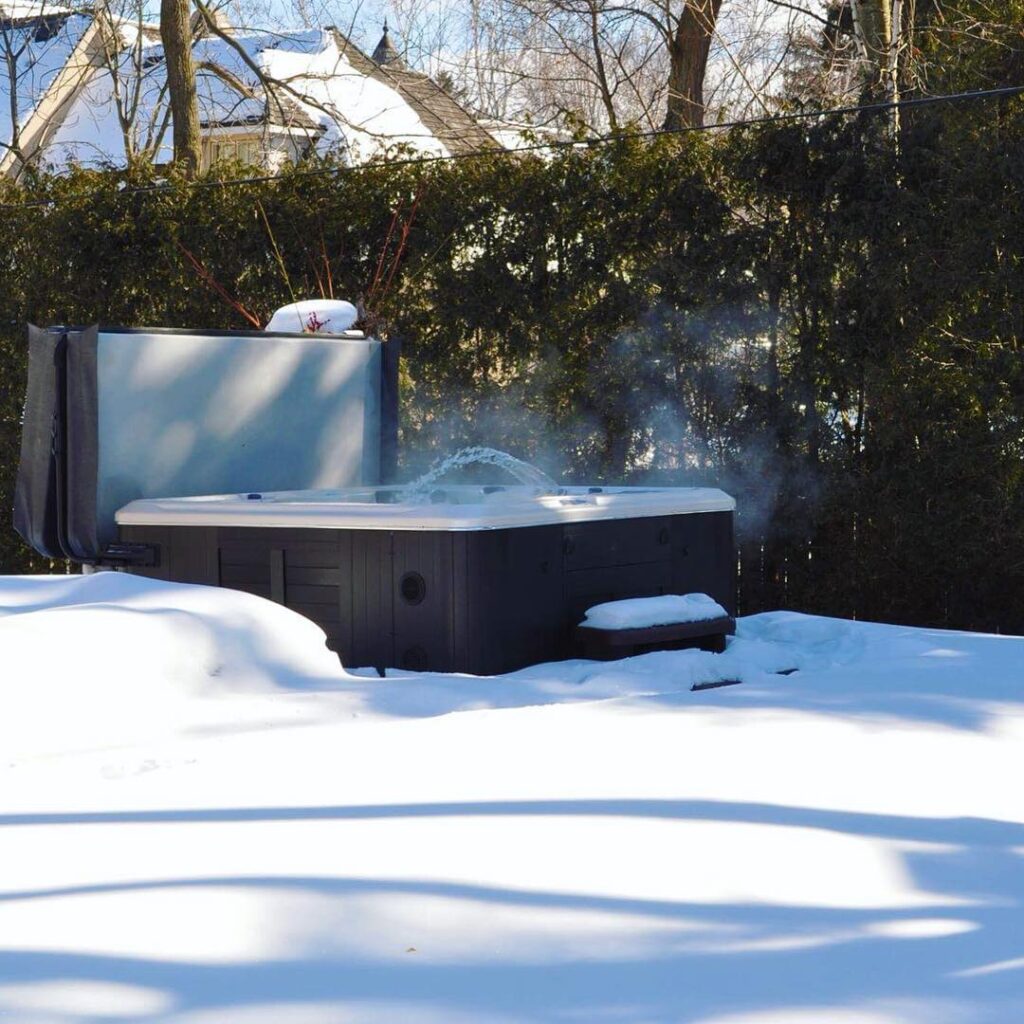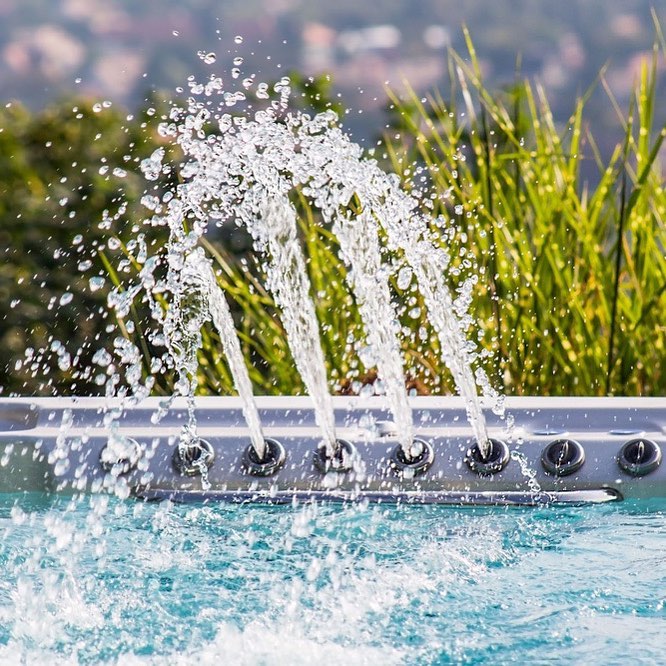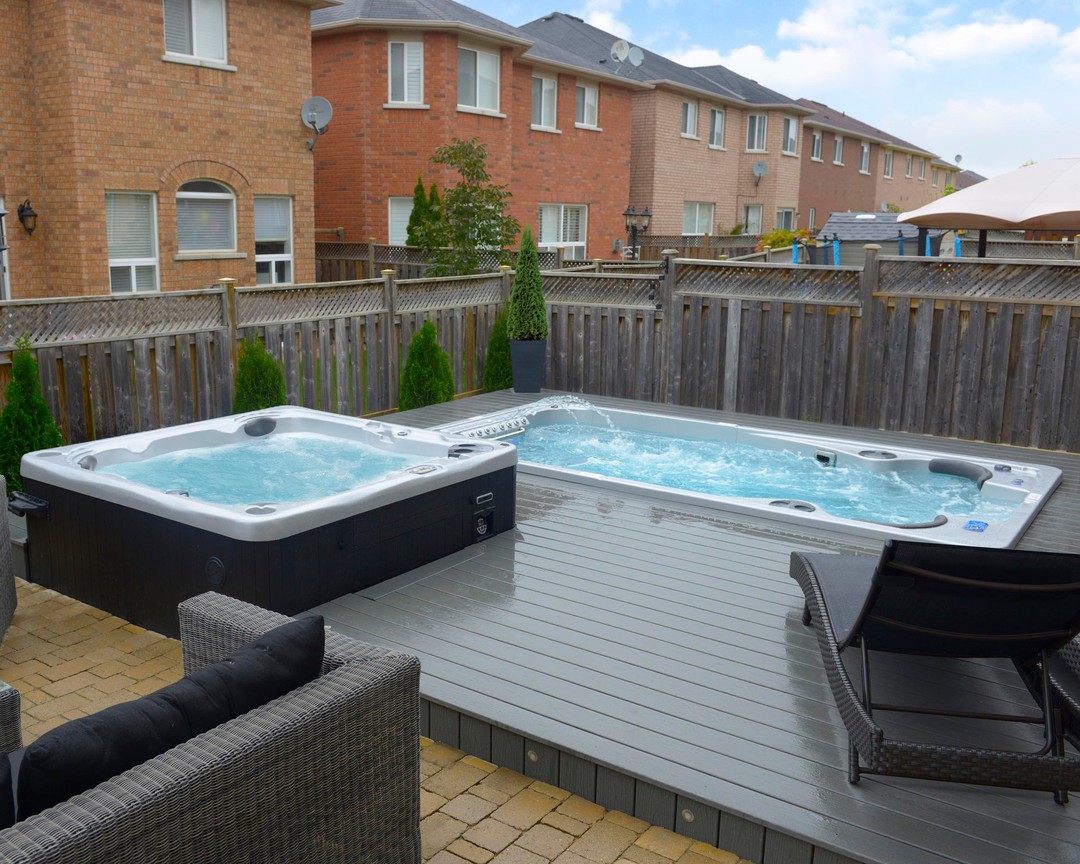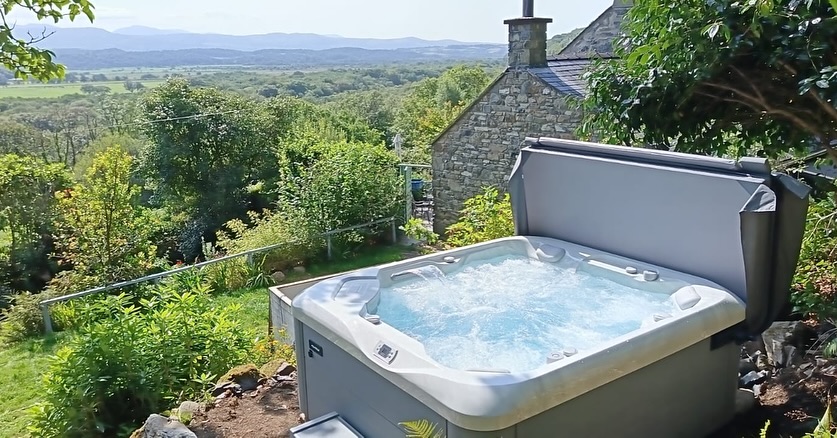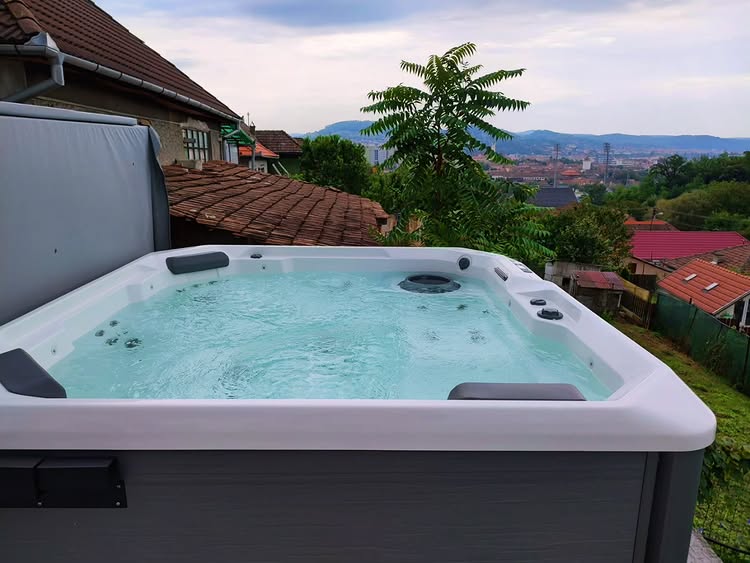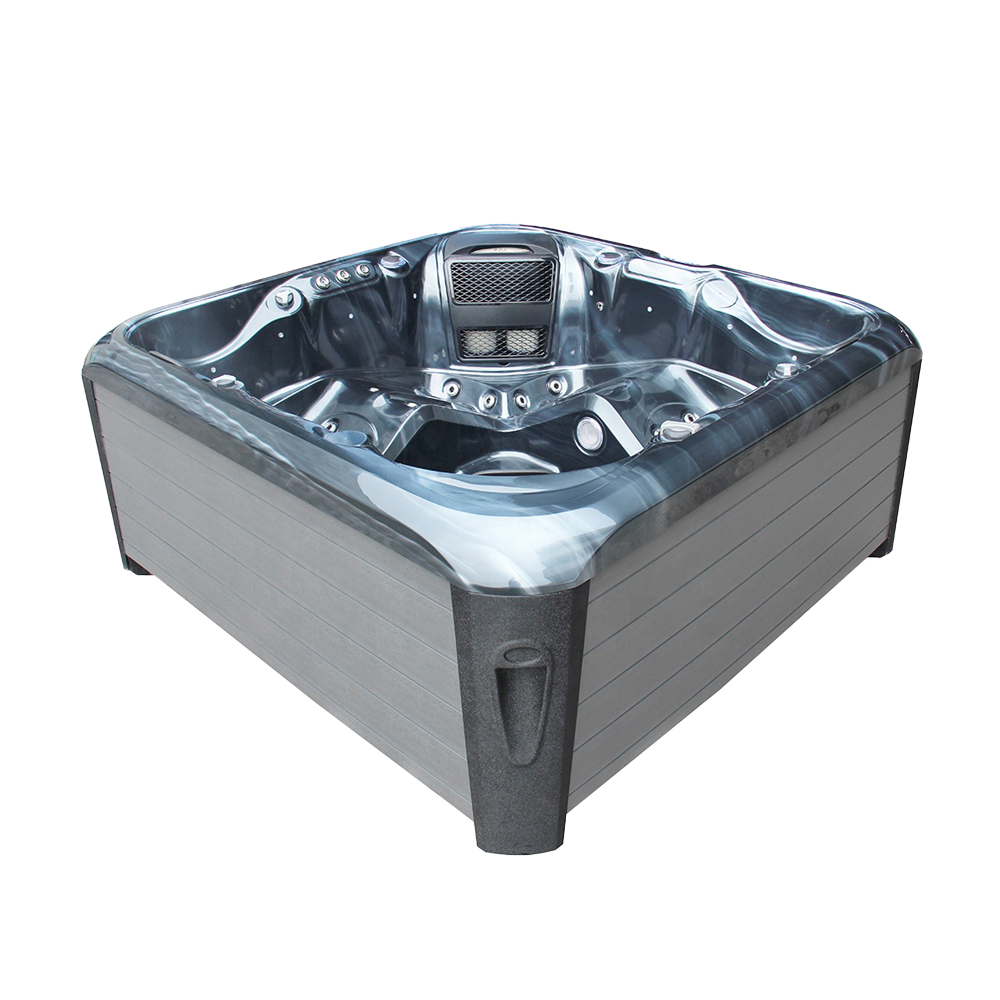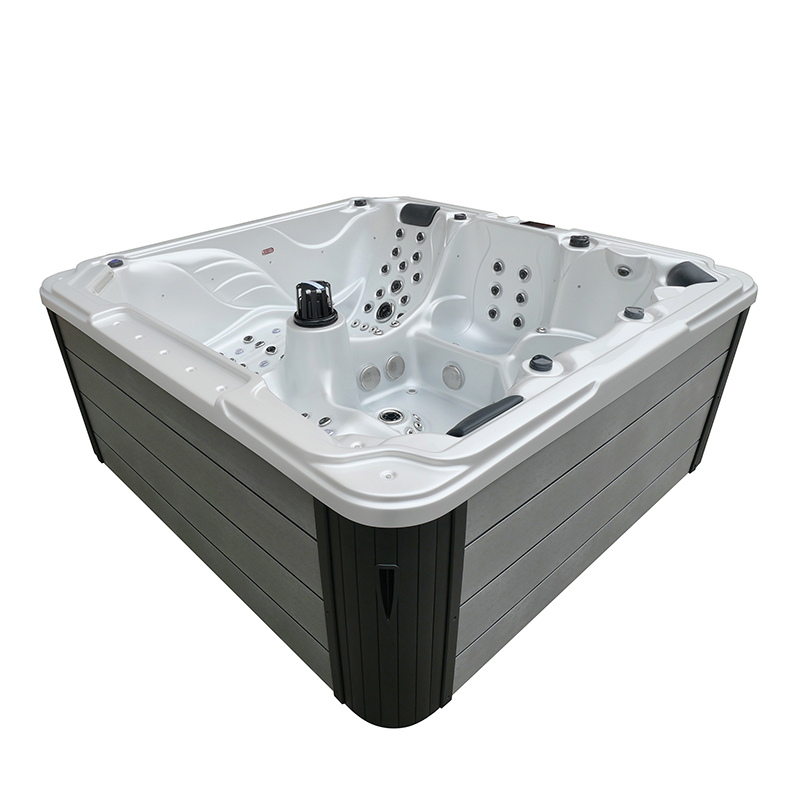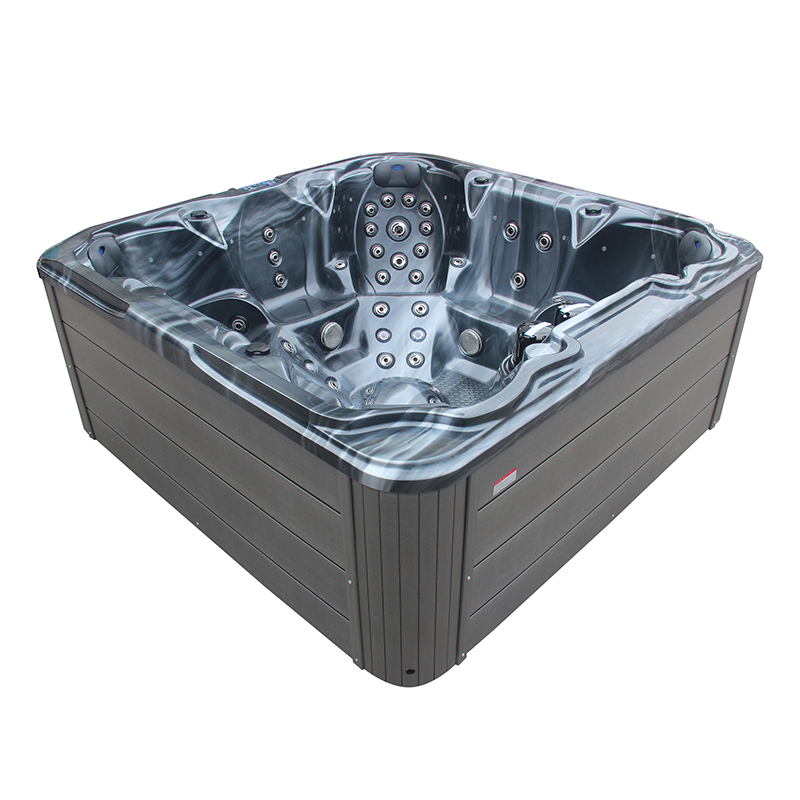Hot tubs and swim spas are renowned for their relaxing and therapeutic qualities. These aquatic retreats provide comfort, soothe sore muscles, and create an ideal environment for unwinding after a long day. But, if you’re wondering whether you can add Epsom salt to your hot tub, the answer is a resounding NO! Epsom salt, while beneficial for your body in a regular bath, is incompatible with the delicate water chemistry and plumbing system of your hot tub..
We’ll delve into the science behind why Epsom salt doesn’t belong in your hot tub. We’ll explore the potential damage it can cause to your spa, suggest safe alternatives for muscle relief, and answer some common questions surrounding hot tub care. Whether you’re a new hot tub owner or simply looking for better ways to care for your spa, this guide will help ensure your relaxation experience stays as pleasant and safe as possible.
Why You Should Avoid Epsom Salt in Your Hot Tub
While Epsom salt offers a variety of health benefits, it doesn’t play well with the systems and chemistry of a hot tub. Let’s explore why it’s a bad idea to use Epsom salt in your hot tub, from potential damage to equipment to changes in water balance.
1. Epsom Salt Can Cause Equipment Damage
Epsom salt is made of magnesium sulfate, a compound that dissolves into magnesium and sulfate ions when mixed with water. While these ions are harmless in small amounts, they can wreak havoc on your hot tub’s equipment when added in excessive quantities.
Corrosion Risk
Epsom salt can accelerate corrosion of the metal components in your hot tub, including the heater, jets, and plumbing. Magnesium and sulfate ions corrode metals over time, which leads to rusting and eventual failure of key parts like the heater or pump. Jacuzzi, a well-known hot tub manufacturer, even warns that salt levels exceeding 1500 parts per million (ppm) can lead to significant corrosion.
Scale Buildup
Epsom salt contributes to scale buildup, which is essentially mineral deposits that form on surfaces within the hot tub. Over time, this chalky residue can damage your spa’s interior and clog the plumbing system. Scale buildup can also impair water flow and reduce the efficiency of your hot tub, resulting in costly repairs.
Oily Residue
When dissolved in hot water, Epsom salt can leave behind an oily residue that clings to filters and other components. This residue can interfere with the filtration system and may even lead to clogs, which reduce the efficiency of the system and increase maintenance efforts.
2. Epsom Salt Alters Water Chemistry
Hot tubs require a balanced water chemistry to maintain the effectiveness of sanitizers like chlorine or bromine. Adding Epsom salt can disturb this delicate balance, leading to chemical imbalances that make it harder for your sanitizers to kill harmful bacteria.
pH and Alkalinity Issues
Epsom salt can make the water either too acidic or too alkaline, disrupting the pH and alkalinity levels. This can lead to skin irritation and reduce the effectiveness of sanitizing chemicals, putting you at risk of exposure to bacteria and other harmful microorganisms.
Increased Total Dissolved Solids (TDS)
Adding even a small amount of Epsom salt to your hot tub increases the total dissolved solids (TDS) in the water. High TDS levels can make it more challenging to maintain balanced water chemistry and can reduce the effectiveness of your hot tub chemicals. For optimal water quality, it’s recommended to drain and clean your hot tub every 3-4 months to prevent excessive TDS buildup.
3. Potential Warranty Voidance
Most hot tub manufacturers provide a warranty that covers repairs and replacements for defective parts. However, these warranties often have strict guidelines about what chemicals can be used in the hot tub. Adding Epsom salt to your spa could void the warranty, as it may be seen as misuse of the product. Always check with the manufacturer before adding any chemicals to your hot tub to ensure you’re not risking your warranty coverage.
What Happens If You Accidentally Add Epsom Salt to Your Hot Tub?
If you’ve accidentally added Epsom salt to your hot tub, don’t panic! While it’s not ideal, you can restore your spa to its proper condition by following a few simple steps. Here’s how to remove the salt and clean your hot tub:
1. Drain Your Hot Tub
Start by turning off the power to the hot tub at the circuit breaker to ensure your safety. Attach a garden hose or sump pump to the drain valve and direct the water to a safe disposal area. Once the hot tub is emptied, close the drain valve and remove any remaining water with a wet/dry shop vac or hand pump.
2. Clean the Hot Tub
Remove the filters and clean them thoroughly with a filter cleaner. If the filters are old or too clogged, consider replacing them. Use a non-abrasive cleaner to scrub the hot tub’s interior, paying close attention to jets and other hard-to-reach areas. Rinse everything thoroughly to remove any cleaning residue.
3. Refill the Hot Tub
Once the hot tub is cleaned, refill it with fresh water. Insert the garden hose into the filter well and allow the tub to fill up to the recommended level. Reinstall the cleaned or new filters and restore power to the hot tub. Add the necessary startup chemicals and run the jets for 15-20 minutes to circulate them. Finally, test the water with a test kit or strips and adjust the chemical levels as needed.
Safer Alternatives to Epsom Salt for Hot Tubs
Fortunately, there are several safe and effective alternatives to Epsom salt that can provide similar benefits for relaxation and muscle relief. These products are designed to be compatible with your hot tub’s plumbing and water chemistry.
1. Hot Tub-Safe Products
Specially formulated hot tub products contain minerals and compounds that mimic the effects of Epsom salt without causing damage to the water chemistry or equipment. One such product is Hot Tub Crystals, which combines natural minerals, herbs, and botanicals to promote relaxation and soothe sore muscles. These products are safe to use in your hot tub and won’t leave behind harmful residues.
2. Hydrotherapy
The soothing warmth and gentle jet massage of a hot tub are already powerful forms of hydrotherapy. Hydrotherapy, which uses water to promote healing and relaxation, can help alleviate muscle tension and reduce stress. If you’re looking for a natural way to relax your muscles, simply soaking in the hot tub for 20-30 minutes can provide tremendous benefits without needing any additional additives.
3. Aromatherapy Crystals
If you enjoy the therapeutic benefits of scents, consider using aromatherapy crystals designed for hot tubs. These oil-free, water-soluble crystals are made from a blend of herbs and botanicals, offering both relaxation and stress relief. Aromatherapy crystals provide a similar effect to Epsom salt without the risk of clogging your filter or upsetting the water chemistry.
FAQs about Epsom Salt and Hot Tubs
Here are some frequently asked questions to clarify any remaining doubts:
1. Can I Use Epsom Salt in a Regular Bath?
Yes, Epsom salt is perfectly safe for use in a regular bathtub. When dissolved in water, it can help relieve sore muscles and promote relaxation. However, remember that a regular bath and a hot tub are different. Epsom salt is not suitable for hot tubs due to the potential damage it can cause to the equipment and water chemistry.
2. What Can I Add to My Hot Tub for Muscle Relief?
Instead of Epsom salt, consider using hot tub-safe products like Hot Tub Crystals or aromatherapy crystals for muscle relief. These alternatives are designed to work with your hot tub’s water chemistry and provide the soothing effects you’re looking for.
3. What Should I Avoid Putting in My Hot Tub?
Avoid adding oils, soaps, bath bombs, and bubble bath to your hot tub. These products can create foam, clog the filter, and lead to the growth of harmful bacteria. Stick to products specifically designed for hot tub use to maintain the health of your spa.
Conclusion
In conclusion, while Epsom salt offers numerous benefits for muscle relaxation, it’s not suitable for use in your hot tub. The magnesium sulfate in Epsom salt can cause significant damage to your spa’s equipment, disrupt water chemistry, and lead to costly repairs. Instead, opt for hot tub-safe products, hydrotherapy, and aromatherapy to achieve the relaxation and therapeutic benefits you seek. By following these safe practices, you can ensure that your hot tub remains in great condition for years to come while still enjoying the soothing benefits of warm water.

